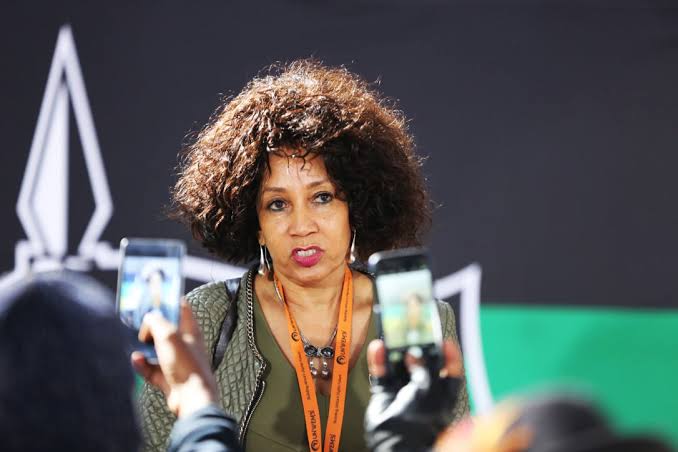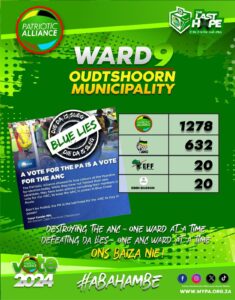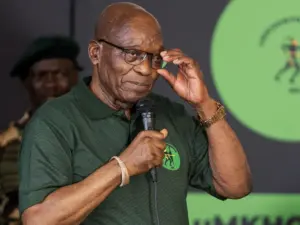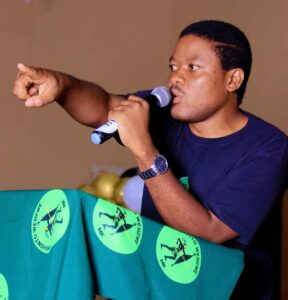By: Clyde Ramalaine
The voices that demand Lindiwe Sisulu’s head over her opinion piece include politicians, academics, judges, and a slew of commentators who, for one or another reason, continue to obfuscate and deflect on peripheral issues.
I read of how Gavin Evans dared to claim Lindiwe as trading on the famous South African surname of Sisulu. Evans does this by dividing siblings when he asserts Lindiwe does not do this for Max, her oldest sibling. The dogma of ‘divide and rule’ the success of the colonial settler-mind refuses to die. Evans does not tell us who gave him the inalienable right to unilateral sense attempt to broach this discussion on the daughter of the late Walter and Albertina Sisulu. Those who cannot engage what Sisulu placed in front of us express these unsustainable incoherent and less content-based views daily. Permit me also momentarily to engage at least one of those, Justice Zac Yacoob, who responded to Sisulu’s article, not necessarily in writing. However, as carried live on the eNCA, JJ Tabane Show first aired on Sunday night. Yacoob’s behaviour is precisely what Sisulu’s article exposes in the judiciary as complicit with untransformed thinking on justice.
It becomes increasingly possible to contend that retired Justice Zac Yacoob abuses his disability or other ableness, better understood in visionary physical impairment [blindness], for vain, puerile, reprehensible, and uncalled for attacks. Interestingly, these are reserved for blacks across all class definitions of a South African societal expression. This latest incoherent salvo comes on the back of his attack on former Treasurer-General Matthews Phosa. His most recent erratic and despicable behaviour on JJ Tabane’s Show [for which Tabane let him and Pallo Jordan both slide] confirms his now entrenched entitled attitude of a bully. His mental blindness allowed his senseless rage to take over to engage in perhaps two unpardonable sins.
Firstly, Yacoob, in distasteful injustice, accused, arrested, charged, prosecuted, and adjudicated in a verdict and sentencing commensurate with his obdurate thinking of justice on Sisulu for her rightful constitutionally afforded opinion. The retired legal scholar who sat at the judiciary’s highest office, namely the Constitutional Court, showed scant regard for the office he once held. He, in this interview, acted bereft of any interest to engage in the logic or the praxis of constructive dissent, a common approach to disagree. Instead, he in apartheid hierarchical mind of his Indian identity being more of superior than Africans and Jim Crow type determined to impose the lynching of a politician. It was clear he detests Sisulu for daring to opine her views on the undeniable reality of transformation as impeded in lived experience for the majority of people who necessarily remain black and disenfranchised. How can anyone of his stature be this blindly ignorant yet blatantly arrogant?
Yacoob’s second unpardonable sin was his impoverished through a vain attempt to lead the battle charge of Sisulu’s de-campaigning. He determined to instruct the ANC branches of the ANC not to vote for Sisulu. This action on the part of Yacoob says more of his lack of jurisprudence. Perhaps a clanging cymbal of an antithetical hollowed mind, wholly absent of the office he was privileged to occupy when he sat in the apex court as one of the Constitutional Court judges.
Yacoob nakedly betrayed his profession and rendered every sane mind to ask what did whoever see in this racist, fascist, misogynist of a judge ever to have appointed him to the office of the supreme court as a custodian of justice?
Perhaps more troublesome is that not one of his past or present colleagues came out to condemn this pathetic and embarrassing show of injustice misconstrued for rational thinking. In an unholy hegemony of common interest cradled in the depravity of untouchableness, they would all find convenient excuses not to join the “not in my name campaign.” Is this not the hypocrisy that Sisulu implies?
Let me now turn to why the claim of ‘colonized minds’ as observed by Sisulu cannot translate to an insult or assault on any one of those who feel aggrieved. Equally so, attempting to deal with this in soliciting a retired judge to adjudicate if the inference of a ‘colonized mind’ in the description of a judiciary stands or not is to set us up for a slanted and one-dimensional conflicted personal view.
It is a fact of history that Africa attests to a colonized continent from its horn to its foot. That colonization was systematic and detailed and interwoven layered form permeating all spheres. Therefore, it is an act of dishonesty to pretend we have in 27 years since a political settlement agreement with the oppressors shed this colonized context and mind. For what reason other than the conscious awareness of how successful the colonization project was do our children remind us in their quest for freedom that our institutions of higher learning are colonized and warrant decolonizing.
How do we deny the prevalence of colonization when the diaphragm of our education in content, structure, and systems rely solely on the tools of colonization. Any source cited in dissertations anywhere details the presence of this colonized reality. At the same time, a sojourning reality has to contend with the many-faceted tentacles of this colonization project. I guess I am trying to unequivocally admit that the very education I claim in methodology, application, and certification cannot deny the womb of its coloniality. Our appreciation of right and wrong as refunneled and separated from original African identity comes defined in that same colonial conquest product.
The decolonization debate is not limited to what we can define as resisting forces against it but includes progressive forces. In this regard, American anthropologist scholar James M. Blaut in his seminal work The National Question: Decolonising the Theory of Nationalism, with Peru as his laboratory, argues for the decolonization of the National Question. We can thus also talk of the decolonization of our arts, sciences, ethics, culture, music and never get to the end of appreciating the reality of how colonized we are. That acknowledgment of our colonized history in current tangibility does not mean we are resigning in the hopelessness of defeat. However, it is the first step in our conscious fight against the medusa of colonialism.
It is a historical fact that the number of Missionary Schools, such as Lovedale in Alice, in the Eastern Cape, did not just teach ANC children to be proficient in English but also shaped and embedded colonized thinking and rationalizing of what constitutes truth and sophism. Anyone who claims this a fallacy is necessarily dishonest. As I pen this piece, I am cognizant of colonization’s role in my own life. The late Anglican Archbishop Desmond M. Tutu shared his personal struggle with the influence of that colonization on him as an anti-apartheid cleric and activist when he cites how one time boarding a plane in Kenya, he discovered the cabin crew was black, peeped into the cockpit, and found the cockpit as black and with a female pilot on top of it, the first thought that crossed his mind, God are we going to land safely. Tutu did not share this to approve of the colonial mind but acknowledged the success of the colonial project that even the most public anti-apartheid voices could not escape.
Suppose anyone asks Sisulu to retract what she said; we warrant asking what she did say. “Meanwhile, our black politicians have become black assets for colonized capital. And that capital keeps knocking at their doors for them to facilitate economic returns to multiply their investments.” This is a sober analysis and honest reflection of the story that unfolds from the CODESA 1 & 2 talks. Any open mind understands that ANC leaders that in 1990 returned from exile or were in the late ’80s released from prison were dirt broke and never had any business interests. The only way for them to have accumulated their current wealth as made possible in a white monopoly controlled SA economy was with the aid of the owners-of-the-means-of-production. In their interest, they bought ANC leadership for the more significant part to use as a buffer zone against any genuine and well-deserving natural anticipated revolt. This must mean they were adopted.
We must accept that this group constituting the elites were financially dry-cleaned by a combination of colonial and apartheid beneficiaries. I have long said these include today a problematic buffer zone that ensures the longevity of SA’s gross and horrendous inequality and practical skewness of economic ownership. At the same time, they arrogate a right as apparent ‘stalwarts’ of the ANC. These constitute nothing but a demilitarized zone, hired and rewarded to render our necessary revolution blunt. They are the signpost of the economic nightmare of the black masses because they, their families, and friend-circles are today exorbitantly rich on the back of the black groups that continue to languish in poverty.
As part of the political drama of DCJ Zondo’s media statement, we heard he was speaking on behalf of the entire judiciary, more so all black judges. I am unsure if such a claim can stand since it is built on a flawed basis that Sisulu referred to all black judges. This obfuscation affords Zondo to parade as a superhero of every black judge. Is it possible that the DCJ was less honest and misled SA? I do not for one minute think Justice Hlophe and many other black judges who know what they suffer in lack of transformation are among this crowd that DCJ represents? In this sense, we must test the DCJ’s statement in this regard in the correct forum to ascertain if he engaged in a mistruth. I dare assert DCJ Zondo, in his unprepared and dishevelled emotional blackmail political statement, did not speak on behalf of all judges and must be challenged for this wanton deception. The DCJ must be compelled to admit he said for a segment of the judiciary that felt the pain, and he is in no position to confirm that all black judges agreed with his sentiments and feelings.
It appears the apparent insult that Zondo, Ramaphosa, and the cohort of judges felt remains the following Sisulu assertion. “The most dangerous African today is the mentally colonized African. And when you put them in leadership positions or as interpreters of the law, they are worse than your oppressor. They have no African or Pan-African-inspired ideological grounding. Some are confused by foreign belief systems. In America, these interpreters are called the House Negroes. The father of black history, Carter Woodson, strenuously complained about in his famous book “The Miseducation of the Negro”. Woodson wrote, “If you control a man’s thinking, you don’t have to worry about his actions. You do not have to tell him to stand here or go yonder; he will find his proper place. You do not need to send him to the back door; he will go without being told. If there is no back door, he will cut one for his special benefit.”
Biko contended, “the greatest weapon in the hands of the oppressor is the minds of those whom they oppress.” this observation of Woodson is not dissimilar to that of the father of Black Consciousness, Steven Bantu Biko, or that of Frantz Fanon and others. For Biko, the path to freedom starts with infusing hope into the black minds, to think of themselves differently from what they were programmed to believe by their colonisers. He also did not fail to remind the colonized of their complicit role in the crime of their own enslavement. For Biko, the colonized needed to be freed from the fear that sees the oppressed abscond from being active in their own emancipation through the tools of politics.
Ngugi wa Thiongo identifies language as the potent instrument in the hands of the colonizers who aim to capture the minds of the colonized. The intention for citing the aforementioned is less to argue in minimums of feelings but as those equally pregnant with the quest for engaging the success of the colonization project concerning the colonized. In any philosophical and scholarly sphere, the articulation of Sisulu stands on the shoulders of Biko, Woodson Fanon, was Thiongo, and many more. Let us ask if Sisulu’s assessment and articulation of her society in this epoch differ from the publicly known cited examples of those who rationalized the control of colonization as holding freedom locked up. Her analysis and conclusion stand not in a vacuum as malicious in intent but strives to be honest in observation.
So, if the only insult is the observation above by Sisulu as a politician, why must she apologize for restating what we all know Biko, among others, observed? Why must she be red-carded and demanded to apologise when what she observed is undeniable and the current reality of our status quo. Why are we entertaining the side-shows of why she is saying it, for what political ambition campaign she is saying, and why she is only saying it now. These are necessarily wholesome deflections of the central topic is the Constitution failing the poor? Are some In the judiciary and politics of colonized mind? If anyone cannot argue this way, and for what agenda must she apologize?
What is indisputable is that in her article, Sisulu raised the pertinent issues that South Africans should be discussing, and why she raised them is beside the point. We are conversing, and no one can deny us to engage. Maybe we must resign ourselves to an acceptance that no one has any monopoly on an African intellect. Neither can anyone claim the moral authority to determine when we raise what and where and for what reason. Engage the matter for its public knowledge, and no amount of muzzling, which abysmally failed for the last 13 days, will stop this.
Lost in the translation is a salient point Sisulu makes in her response to Lamola, “Comrade Lamola, those of you as. A younger generation asks us who birthed this Constitution some very challenging questions. These include: Is there nothing peculiar if not ominous for us who laboured for its existence to fail in not questioning how and why former oppressors the world over was never as pleased with the post-dispossession outcome than in South Africa – as a constituency – In whose interest cognisant of that historical oppression are the oppressors’ celebration of this Constitution? They ask us to critically engage why former oppressors are so elated with this particular Constitution and why the beneficiaries of colonial and apartheid systems are prepared to kill for it? These questions are not lightweight ones.”
Right here is what should concern every true African, not the white-picket-fence embarrassment of the elites on both sides of the racial divide. Permit me once more to lean on St. Augustine and hear him unequivocally speak truth to power in this assertion, “A government that does not know justice is nothing but a bunch of gangsters.” I guess St Augustine died long ago because this multi-coloured and interested hypocritical factional crowd that bid for Sisulu’s head would have lynched him had he lived today.







